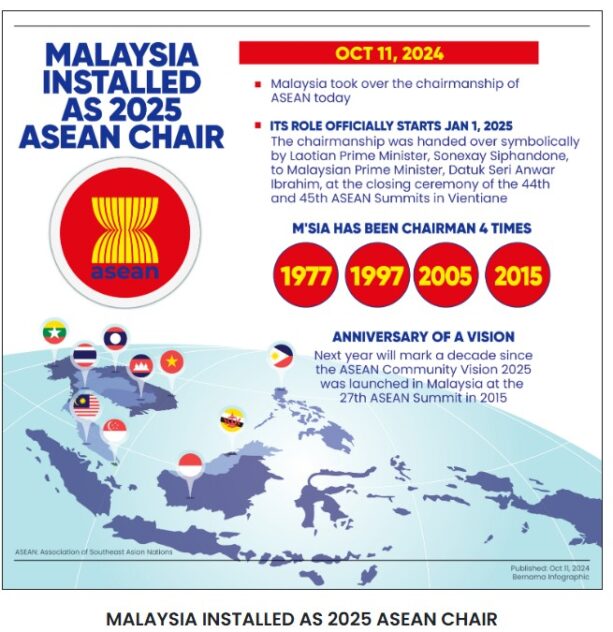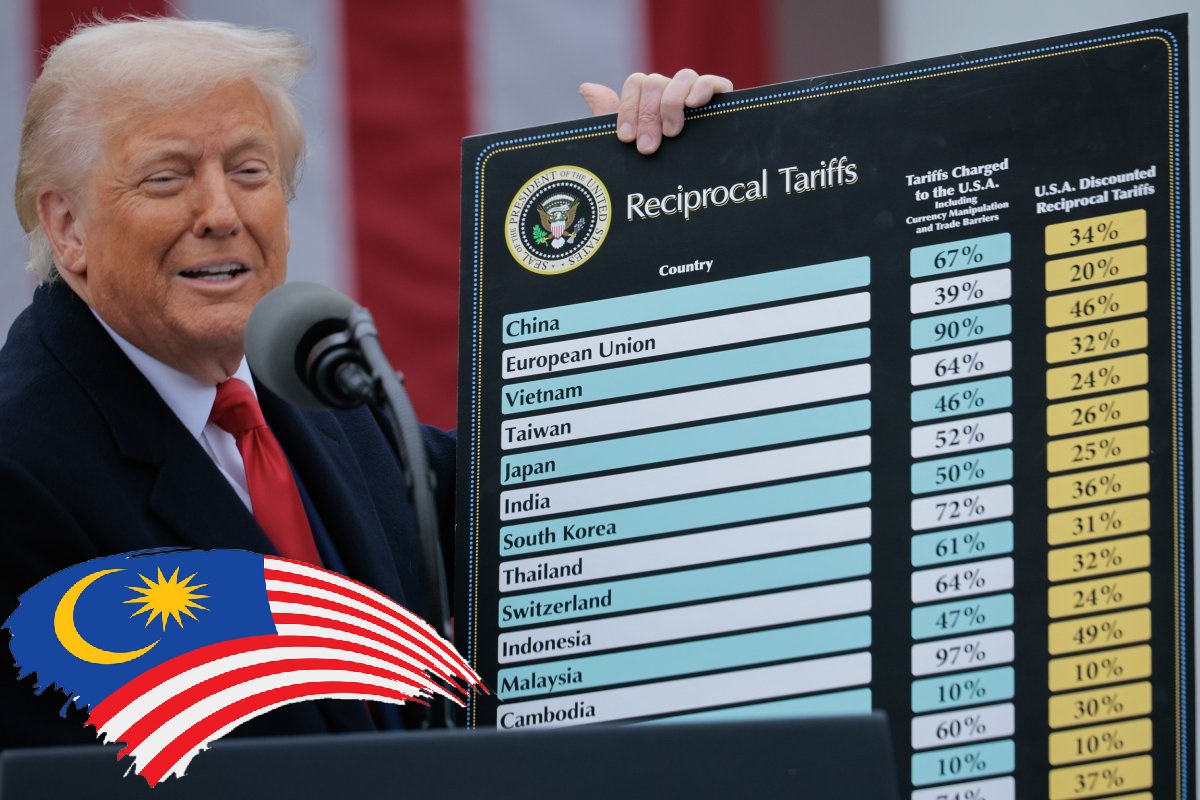Editor’s Note: Asian shares nosedived on Monday (April 7) after the meltdown Friday on Wall Street over U.S. President Donald Trump’s tariff hikes and the resulting backlash from Beijing.
US futures also signalled further weakness. The future for the S&P 500 lost 3.7% while that for the Dow Jones Industrial Average shed 2.9%. The future for the Nasdaq lost 4.7%.
At 4.27pm, the FBM KLCI shed 60.79 points or 4.04% to 1,443.35 while Hong Kong’s Hang Seng Indez plummeted 13.22% or 3,021.51 points to close Monday’s (April 7) trading at 19,828.30 points with sell-off also evident in Japan with the Nikkei 225 Hang edged down 2,644.00 points or 7.83% to end at 31,136.58 points.
US President Donald Trump’s sweeping tariffs – targeting a broad range of countries, including ASEAN nations and other key trade partners with rates ranging from 24% (Malaysia) to 49% (Cambodia) – represent perhaps the most aggressive US protectionist turn since the Smoot-Hawley tariffs of the 1930s.
While it may be tempting to retaliate with matching tariffs, doing so could prove self-defeating.
Trade barriers harm not just those they target but also those who erect them. For countries with limited capacity for import substitution (eg under-developed industrial bases) or undiversified supply chains, escalating a tariff war would only amplify domestic vulnerabilities.
At the same time, surrendering to “phenomenal” concessions – as vaguely demanded by Trump – would be equally unwise.
In some capitals, vested interests are already leveraging tariff threats to push for sweeping concessions to US demands. But such reactions are often driven by panic rather than pragmatism.
Malaysia, for instance, is reportedly under scrutiny for policies related to halal certification, digital regulation and preferential treatment for local firms.
Yet many of these measures are sovereign decisions rooted in national values and development goals – they must not be traded away under duress!
Strategic patience
Rather than overreacting, countries caught in this crossfire must use the moment to do what should have been initiated long ago.
- Advance strategic import substitution but not through tariffs: Protectionism doesn’t breed innovation; smart domestic policy, investment in R&D (research & development) , workforce upskilling and tech transfer does.
- Accelerate supply chain diversification: Less differentiated products can be redirected quickly but complex goods – especially those not yet targeted by US tariffs – require long-term planning.
For Malaysia where electronics and electrical components make up over 40% of exports (many bound for the US), the risk of future tariff inclusion is real. Waiting for the next White House announcement would be a costly mistake.

- Deepen multilateral trade ties and South-South cooperation: Malaysia and ASEAN should strengthen engagement with Regional Comprehensive Economic Partnership (RCEP), Comprehensive and Progressive Agreement for Trans-Pacific Partnership (CPTPP) and key trading blocs like the European Union (EU) and the Gulf Cooperation Council (GCC)
Expanding into African, Latin American and Middle Eastern markets is equally essential. Malaysia’s proactive entry into the expanded the BRICS (Brazil, Russia, India, China and South Africa) framework also opens promising new corridors for trade, investment and knowledge exchange.
Asia’s major economies have already begun charting their counterstrategy. China, Japan and South Korea are deepening trilateral ties, including joint investment in semiconductor supply chains.
These are long-term resilience strategies – not just reactions. Malaysia and ASEAN must act decisively to keep pace.
As outlined in the April 6 Prime Minister’s statement on the US Reciprocal Tariffs, Malaysia’s response reflects strategic maturity: no retaliatory tariffs but instead a focus on preserving investor confidence, safeguarding sovereign policy space and accelerating economic transformation.
Trump’s tariffs are not just trade tools – they’re geopolitical signals. They reflect the US’s retreat from its role as steward of a rules-based global trade order.
The future of the global economy – especially for middle powers like Malaysia – depends on our ability to withstand such disruptions.
The answer isn’t impulsive reaction but strategic resilience, diversified alliances and assertive sovereign agency. – April 7, 2025
Dr Rais Hussin is the Founder of EMIR Research, a think tank focused on strategic policy recommendations based on rigorous research.
The views expressed are solely of the author and do not necessarily reflect those of Focus Malaysia.









